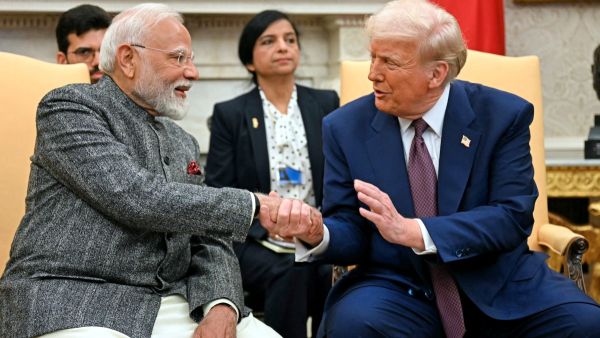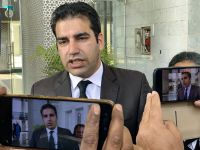ALBAWABA – US President Donald Trump announced a surprise ceasefire agreement between India and Pakistan, marking a rare diplomatic breakthrough amid mounting global tensions and domestic political pressures.
The deal, which ended weeks of escalating border conflict between the two nuclear powers, was the result of behind-the-scenes efforts by Trump's national security and diplomatic teams.
The development comes at a critical time for the Trump administration, which has been under fire for economic instability, tariff disputes affecting consumer purchasing power, and stalled mediation efforts in the ongoing Ukraine war. Trump's pledge to swiftly end the Ukraine conflict has so far faltered, casting doubts over Washington’s ability to influence global crises.
With U.S. credibility on the line, the administration has shifted its focus. The failure to bring Moscow and Kyiv to the negotiating table prompted Vice President J.D. Vance to call for direct talks between the two nations, abandoning hopes for a successful American-led resolution.
India’s strategic role appears to be gaining prominence in Trump’s second term. Vice President Vance recently visited New Delhi with his family, highlighting not only the administration’s investment in the India-U.S. partnership but also personal ties—Vance’s wife has Indian heritage. The visit underscored growing technological and economic collaboration between the two nations, seen as part of Washington’s effort to counterbalance China's rising influence in Asia.
Trump's personal rapport with Indian Prime Minister Narendra Modi, renewed after his return to office, has further deepened bilateral ties. Modi was among the first leaders to visit the White House following Trump’s re-election, signaling mutual trust and shared interests.
The ceasefire was announced just weeks after a deadly attack on Pakistani territory that claimed the lives of several Indian tourists and reignited military tensions between the longtime U.S. allies.
Despite Pakistan’s historic role as a key security partner—especially during the U.S. military campaign in Afghanistan—Trump made clear his unwillingness to tolerate new conflicts between American allies. During a visit to Rome, he described the situation as "shameful," urging both sides to settle their disputes peacefully.
The diplomatic push culminated in a flurry of calls by Acting Secretary of State Marco Rubio to Indian and Pakistani officials. These efforts kept communication open until the official ceasefire was secured, offering Trump a rare foreign policy win at a moment when his administration urgently needed one.










